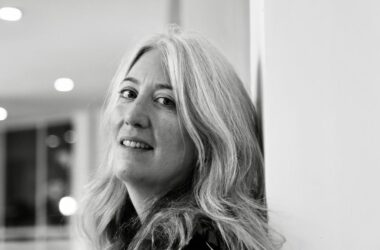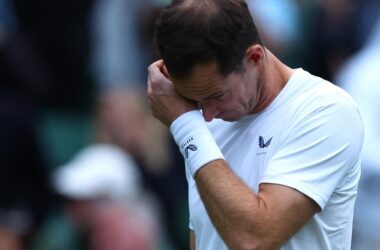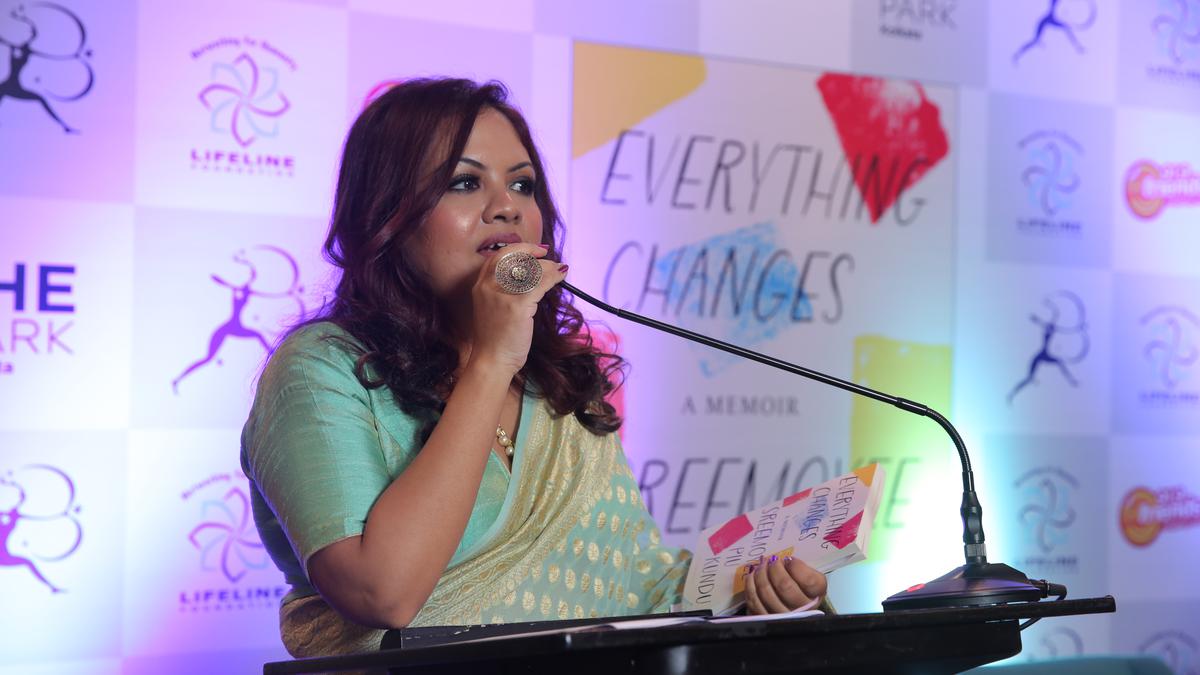Trigger warning: The following article has references to suicide. Please avoid reading if you feel distressed by the subject.
When her biological father died by suicide, a year after he had been diagnosed with schizophrenia, Sreemoyee Piu Kundu was a preschooler. But she found out about this tragedy only as a teenager. On the occasion of World Suicide Prevention Day, she talks about her memoir, Everything Changes, where she writes about how the mystery and the whispers surrounding her father’s demise shadowed her childhood and growing-up years, the stifled suffering of survivor families, and how it took her four decades to accept and forgive him, understand his then state of mind, and respect him for the person he was. Edited excerpts:
Everything Changes: A Memoir; Sreemoyee Piu Kundu, Bloomsbury India, ₹499.
When you were young, you wrote letters to your deceased father. Was that a coping mechanism?
I was just writing letters to my father, because I didn’t have a father. Nobody told me where he was. Writing to him was an emotional crutch, because there was no other healthier coping mechanism. If I was bullied in school, I would write to him, ‘You know this happened… Baba, can you come?’
I idolised my father, in that phase of my life. I had built him up to be this superhero. So, when my [maternal] uncle blurted out that my father had [died by suicide], a day before my board exams, it was all very confusing. Children like me who’ve never really known their father or mother, and lost them to suicide, go through an identity crisis, because our self-worth is linked to our families, our parents. For a very long time, I looked at suicide as weakness, incompetence, cowardice. It took me my own inner spiritual growth, my own journey through pain, to look at my father’s life, his pain of being trapped in his own mind.
So, the healthiest coping mechanism [for me, in childhood,] would have been conversation. But mental health is such a stigmatised, non-mainstream discussion. Even today, survivors don’t have [well-defined, individual-centric] coping mechanisms, because we are not taught how to cope with something that is sad, and not happy, victorious, successful, or socially accepted. There is no trauma counselling. No concept of grief counselling. And no support group.
How can survivor families, especially those with children, have an informed, sensitised conversation around suicide?
In Indian families, we don’t talk about death or trauma at all. There is this whole sinister culture of silence. It is like white noise. We don’t have the vocabulary to explain or describe death, which has not happened by disease or natural accident like a plane crash or a landslide, to a child. So, that child doesn’t have the language or idioms of expression to share it with her schoolmates.
When I asked my mother why she had never told me about my father’s [suicide], I saw guilt, confusion, and repentance on her face. But she didn’t know any better. She was not given the advice by her parents, who themselves hadn’t received any advice from their relatives — that there is a child involved and she probably needs counselling. But counselling was not mainstream, in those days.
And then, the school should have been involved. But they told my mother, “Don’t tell your daughter. She is too young. She won’t understand. She will be devastated.” Nobody thinks of the aftermath of this silence. Today, there are therapists in schools. They have to be prepared that if a parent dies by suicide, the school has to step in to provide that child a safe space.
Through your book, how do you plan to kindle hope among survivor families?
I wish to start conversations about suicide, the trauma, and the marginalisation and social exclusion of survivor families. [As a survivor,] I would be happy to talk to schools about the impact of death and suicide on children. But no school wants to host these talks. All they want to talk about is exam stress.
[By reading my book], I hope survivor families feel that they are not alone, especially children whose parents have died by suicide. If there is a daughter like me, who has lost her father… I hope they are able to feel peace… at least, some sense of peace.Does patriarchy play a role in shaping societal attitudes towards suicide and survivor families?
Patriarchy does play a part, even if not directly… The moment a [man] dies by suicide, people immediately say it is the wife’s fault. When my father passed away, a local newspaper in Midnapur [my father’s hometown] had carried my mother’s name, saying she was responsible for it. The way she was ostracised socially, she has never been able to grieve in public.
[At that time,] all that my mother expected of [my father’s elder brother] was to support her emotionally, but instead, he just sent her money. Because that is what is expected of a son, that he will send money. Oh, what a dutiful son! What a dutiful brother! That’s patriarchy! Nobody really wants to undergo the emotional labour of relationships. And this is a crisis now more than ever.With people willingly opening up to strangers online these days, how has the safe space for survivor families changed?
On social media, although people talk about mental health, it has made the world lonelier. People are opening up to strangers and counting on their presence. It’s scary, because they are confiding in someone they don’t know, who can just take that information and put it out there.
Having said that, there are communities, where people are able to talk about living with bipolar disorder, ADHD, or anxiety. But are [the others] really listening? Do [the others] really understand? The mental health of a survivor is often precarious. People put up Facebook posts, saying, “You can call me… You are not alone.” But who does a survivor call? I think it may take years for society to hold space collectively for survivors. And for people to show up for each other in a more compassionate and real way.
If you are in distress, please reach out to these 24×7 helplines: KIRAN 1800-599-0019 or Aasra 9820466726. You may also call the numbers provided in this link. https://www.thehindu.com/news/national/suicide-prevention-helplines/article61753129.ece
The interviewer is a children’s book author, graphic novelist, and editor based in Mumbai.








